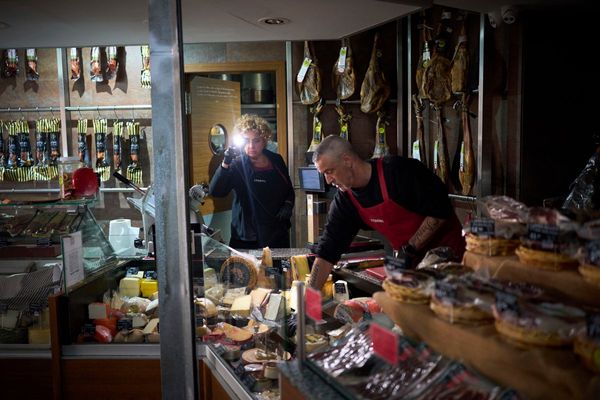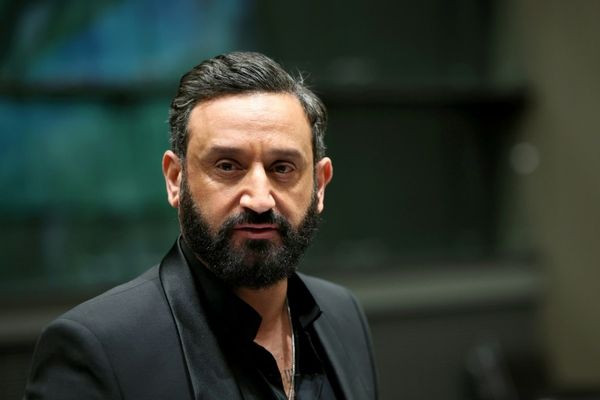
A 10-month-old baby, who was killed by his parents just 39 days after a court returned him to their care, should have been “one of the most protected children in the local authority area”, a review has concluded.
Finley Boden died on Christmas Day 2020 after a period of “inadequate safeguarding” by authorities, who initially removed him from the care of his parents, Shannon Marsden and Stephen Boden, immediately after birth due to concerns for his safety.
He died after suffering 130 separate injuries, including 71 bruises and 57 fractures that left almost every bone in his body broken.
Marsden and Boden, from Old Whittington in Chesterfield, Derbyshire, were found guilty of his murder and were handed life sentences in May last year.
A review into Finley’s case, published by Derby and Derbyshire Safeguarding Children Partnership on Wednesday, concluded he died “as the result of abuse when he should have been one of the most protected children in the local authority area”.
It stated that although most of the details exposed during the trial were “unknown to professionals working with the family,” safeguarding was “inadequate” and “professional interventions should have protected him”.
It detailed the events running up to his death, including a “pivotal” court hearing, held remotely over thephone as a result of the Covid pandemic, which decided Finley should be returned to his parents’ care over an eight-week transition period.
This was a shorter period of time than that recommended by social workers who suggested a four-month transition.
The court also did not require drug testing of his parents to continue, despite concerns about substantial cannabis use. Social workers were “disappointed and frustrated” by the court’s decisions, the report stated.
The family court heard from the Children and Family Court Advisory and Support Service (Cafcass) that the risk of harm posed to Finley by his parents was not unmanageable and did not require him to be placed out of their care “in the foreseeable future”.
The report highlighted a number of ways in which the restrictions introduced during the pandemic complicated efforts to monitor vulnerable children and their parents. “Face-to-face contact with families reduced or ceased [and] professional’s dependence on parents’ ‘self-reporting’ correspondingly increased,” it said.
It also said Boden’s drug use “was ‘generally self-reported’, with practitioners having ‘no ability to visually assess his presentation’”, and when Finley was returned to his parents’ care, no professional had been inside the home to check on conditions.
Social workers reported that “parental dishonesty” made risk assessment increasingly difficult, and one social worker was subjected to “verbal abuse” during an unannounced visit.
A spokesperson for the children’s charity NSPCC said there were “many red flags and missed opportunities to ensure Finley was properly protected”.
“Safeguarding practices were impacted by challenges imposed by the pandemic. But it is incredibly worrying that so much weight was given to the parents’ accounts and concerns by professionals were not properly addressed,” they said.
The review made 11 recommendations in total, including that the partnership carries out “a multi-agency audit” of recent parenting assessments, and implements better joint working with substance misuse services, as well as more effective responses to domestic abuse.
During the trial, it was accepted that Marsden had been a victim of such abuse.
The council’s executive director for children’s services, Carol Cammiss, said: “Finley’s death was a tragedy for everyone who knew him and everyone involved in his care. Despite the significant Covid restrictions placed on our work at the time, we know there were missed opportunities for stronger practice and we apologise for that.”
She stressed that a recent Ofsted inspection of the council’s children’s services had rated it ‘good’ and that work had already commenced to “review and strengthen our systems”.
“A lot of the recommendations that were made [in the review] have already completed,” Cammiss said. “We fully accept that there were some shortcomings. But the context of this is the pandemic that put pressure on the system.
“It was an unprecedented context in which this tragedy took place. Nobody could have prepared fully for how we needed to work during that period of time.”
The Derby and Derbyshire Safeguarding Children Partnership said it would “take the additional action necessary to further reduce the risk of a repeat of a similar incident”.
The partnership’s independent chairperson and scrutineer, Steve Atkinson, said: “I offer my sincere condolences to Finley’s family and apologise on behalf of the partnership for what happened.
“But I ask you to remember that Finley’s parents were responsible for his death, not any practitioner from any of the caring services.”







